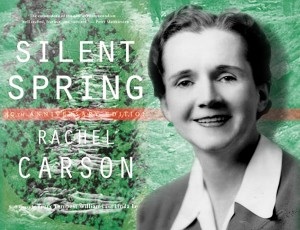I started this little weblog series with the question that is in the heading of this blog. I asked myself this question due to the New Story Summit in Findhorn, organized with the purpose of finding guidelines for the future. At a certain moment the participants seemed to have arrived at an impasse in which they didn’t dare to stay as long as was needed. Instead they cheered themselves up with reassuring and comforting talk. But the I Tjing gave a different answer – see the first blog in this series (October 3). In short: it said to do nothing. Quote: The accepted date has gone by. Let it go. It said more, but in order to fully experience the depth of the reading I advise you to read the original text again in the mentioned blog.
This caused in me a complete trend of thoughts and contemplations about which I testified in the last few blogs. I now am reaching a preliminary conclusion. Here it is.
The first thing we could do is is, indeed, do nothing. Standing still, so that our soul can catch up with us. Being as aware as we possibly can be. Being conscious of what is going on inside and outside. Reading books about it. Being aware not only of what is going wrong, but also of the beauty that is always present inside and around us. And, very important: developing an image of the world we long for. This is completely in line with the I Tjing reading.
The second thing we could do is change our lifestyle. We can try to diminish our ecological footprint. We can choose our food more consciously and responsibly (hardly any meat, food from the neighborhood and of the season, and so on). We can diminish flying and car driving, and going by foot, bicycle or train instead. We can save energy by house isolation, turning the heating lower and buying led lamps and energy saving devices. In one of the earlier blogs I said that these life style changes will not make a big difference in the outside world, but it will influence our attitude.
Three: we should protest to everything that is harmful in this world. We can do this in several ways. In our consumer behavior: refusing to buy things that are produced in a socially or ecologically damaging way, and , in general, restricting the amount of things we buy. In our political behavior: voting for or joining or being active in the party that most endorse our ideals. Joining protest groups or NGO’s that resist irresponsible policies, like for instance Greenpeace or Avaaz. Participating in demonstrations for world peace or a global climate policy, or against irresponsible profit making on a global or on a local scale (mining in a vulnerable nature area, shale gas extraction, destroying the rain forest, whatever). The least we can do is raising our voice in speaking and writing and signing petitions. We have to stir the soup, all, together.
Four, we should create beauty. Being active in the world to give what it is we have to give, with love. The world then will become dear to us, and that will lead to more creativity. This is a constructive force opposing the destructive forces.
Five, we should pray. We cannot solve the enormous problems that lay ahead of us alone. We need help form the subtle world. And we certainly will get that, if we are willing to listen and be open and flexible, and prepared for change
None of these ‘actions’ will solve the climate problem That cannot be solved anymore, therefore it is too late. But we can move to a future in which we not only can survive, but have a more dignified world than the one we have now. However we are not perfect (yet) and thus we shall live by compromise. That is OK, as long as we are aware of that.
Let me end this blog with a quote for one of the participants in the Findhorn New Story Summit.
Travelling home through the rolling hills and magnificent skies of Northern Scotland, I wonder at our dilemma. We need to go beyond ourselves, and yet we behave as if we have only ourselves with which to get there. It was good to gather on this summit, to know ourselves and know our limits. Perhaps we were reminded of our smallness and our tendency to subtle forms of hubris. And some of us at least, were driven – in the face of paradox and few other options – back to the simple practice of prayer and remembrance – of turning to something bigger than we are and confessing, “We don’t know”. (Justine Huxley’s blog)
And finally: about myself. For me, in this phase of my ilife, my emphasis is upon the items one and five. If that leads to further action in the other realms remains to be seen. I’ll go with the flow and bless you all with courage, resilience and joy. So be it.
(I apologize for mistakes in my English. Blogs are cursory – not stuff for correction by a native speaker).



